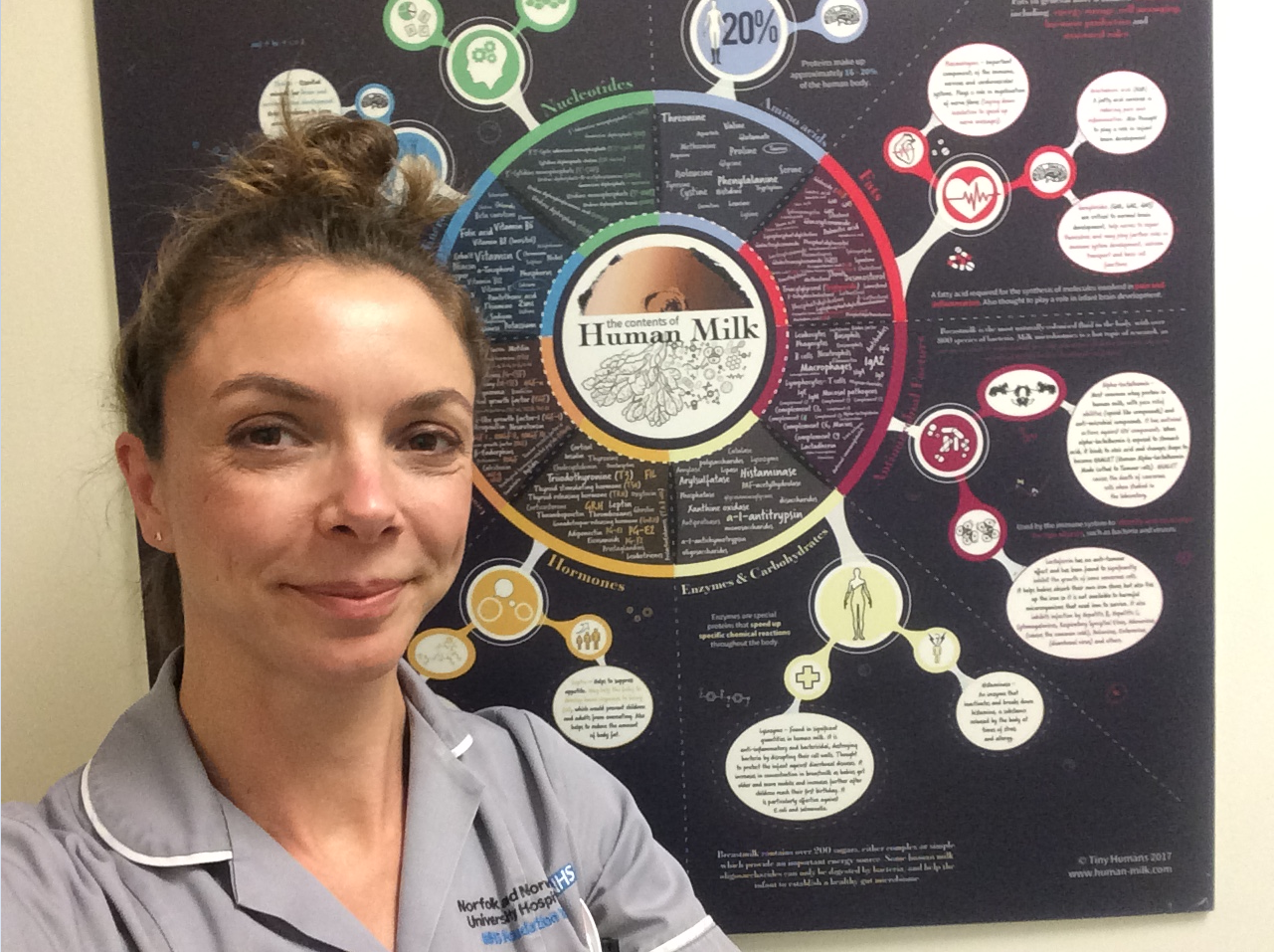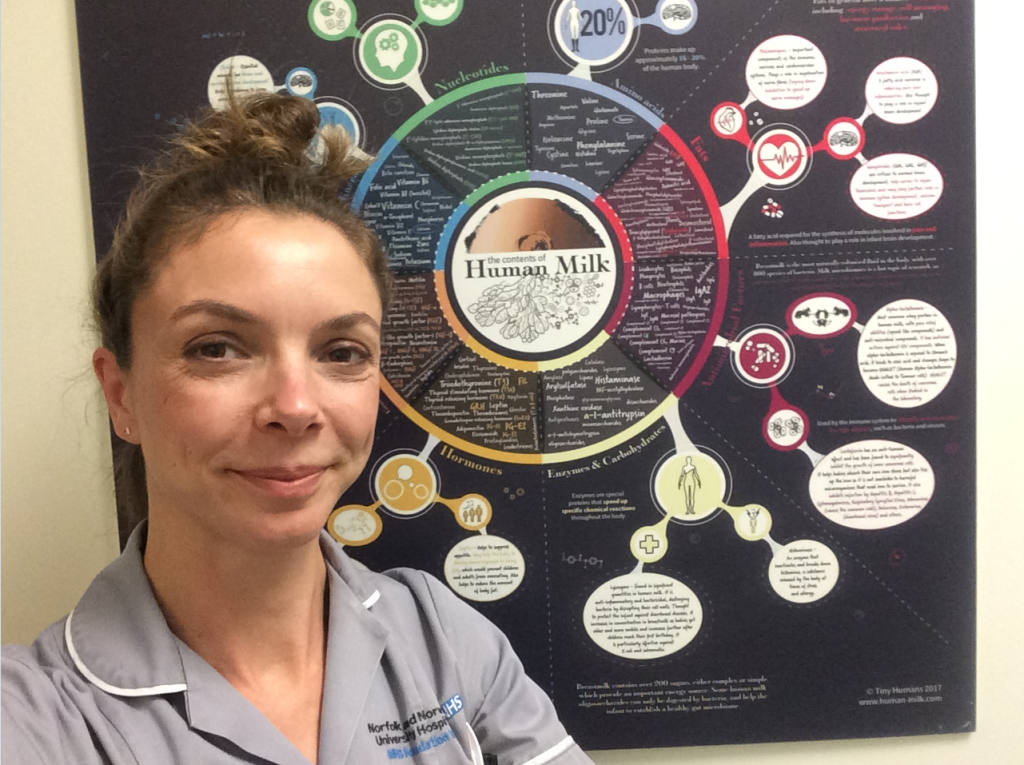The success of a project held at the Norfolk and Norwich University Hospital (NNUH) to increase breastfeeding rates in women with diabetes has been shared at the UNICEF Baby Friendly Initiative (BFI) conference.
Diabetes in Pregnancy Infant Feeding Specialist Lucy Lowe has worked alongside Gemma Partridge, Consultant Obstetrician on the project which aims to increase breastfeeding initiation rates for women with diabetes. Research shows that this cohort of patients are less likely to initiate and sustain breastfeeding. The project involves giving bespoke one-to-one, evidence based antenatal feeding education and support. This intervention empowers parents to make an informed choice about feeding, enhances their knowledge of responsive parenting, strengthening brain development and relationships, and reducing adverse health outcomes.
Breastfeeding is known to have many benefits to mother and baby. Mothers with Gestational Diabetes are more likely to develop type 2 diabetes postnatally. Breastfeeding for up to six months can lower that risk by 24% and breastfeeding for more than six months can lower it by 47%.
The results of the project show that breastfeeding initiation rates in this group of patients at NNUH increased from 68% to 90%. Exclusive or partial breastfeeding rates were also higher on discharge from midwifery, increasing from 60% to 75%.
NNUH’s maternity department was awarded full BFI accreditation at the end of 2023. The BFI initiative supports breastfeeding and developing close and loving parent infant relationships so that all babies get the best possible start in life. Trusts which implement the Baby Friendly standards receive the prestigious Baby Friendly award, a nationally recognised mark of quality care.
The BFI conference takes place every year with speakers from across the country sharing best practice and innovative projects. This year it was on 23 November and Lucy shared details of the project with conference delegates including paediatricians, neonatal teams, midwives, lactation consultants and other healthcare professionals.
Lucy said: “I’m delighted to share the results of this project that show that personalised infant feeding education helps increase breastfeeding rates for people with diabetes. We’ve shown that it’s a relatively low-cost intervention that could be easily replicated in other groups who could benefit, such as people who are pregnant with twins or triplets, or in people with a high BMI. It’s a great accolade for us to speak at the conference. I hope other Trusts can learn from our work and adopt this approach to help give more babies the best start in life.”


